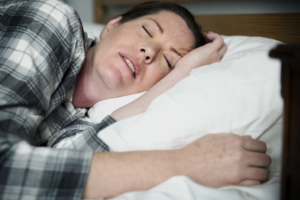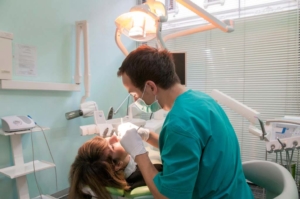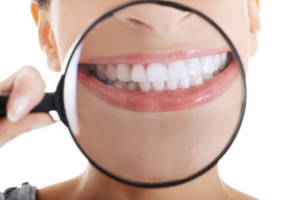Sleep apnea is a very common experience, the sufferer can record, over the course of one night, several episodes of sleep apnea with consequences that have an impact on health and quality of life.
Can dentistry help solve sleep apnea problems?
 As we mentioned, the consequences of sleep apnea can affect different aspects of the body’s health and also the quality of life.
As we mentioned, the consequences of sleep apnea can affect different aspects of the body’s health and also the quality of life.
When sleep is disturbed by sleep apnea, one of the main consequences is excessive sleepiness during the day, because the quality of sleep is certainly lower and you cannot rest well.
Added to this are also the physical complications that can result in:
- heart problems;
- articolar pains;
- acute fatigue.
Dentistry can provide a valuable aid to the reduction of sleep apnea episodes thanks to specific devices.
The main cause of obstructive sleep apnea is the collapse of the pharynx and the consequent obstruction of the upper tract areas. Dental devices are used to stabilize the first areas and to avoid the pharynx collapse.
How do dental apnea devices work?
 The treatment of sleep apnea with dental devices involves inserting the device into the mouth. Its function is to restore the correct jaw position, tongue and maintain the right diameter of the upper airways.
The treatment of sleep apnea with dental devices involves inserting the device into the mouth. Its function is to restore the correct jaw position, tongue and maintain the right diameter of the upper airways.
Dental devices for mandibular advancement (MAD)
These are devices that bring the lower jaw down thanks to the traction force that is determined by anchoring the device to the teeth.
Dental retention devices (TRD)
These are devices that act on the tongue and guarantee its protrusion during the night hours, increasing the diameter of the first routes in the areas. Being an elastic bulb that has a suction effect, this device is not well tolerated by patients.
New devices
Treating sleep apnea with devices to keep in your mouth during sleep can be very annoying. For this reason we have tried to improve the devices making them more flexible and able to guarantee the mobility of the jaw.
The new materials used in dentistry also make it possible to reduce the thickness of the devices for less invasiveness.
Are there any contraindications?
Not all those who suffer from sleep apnea can access treatment with dental devices. Who suffers from some specific pathologies such as:
- teeth that move;
- malocclusion;
- periodontitis;
- caries;
in these cases the anchoring of the device to the teeth could lead to a worsening of the patient’s clinical conditions. Before proceeding with a dental treatment for the reduction of sleep apnea it is important that the health conditions of the oral cavity are optimal. So before intervening it is important to resolve existing pathologies for greater assurance and safety.
















